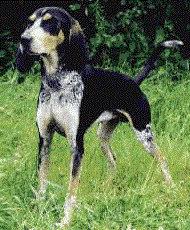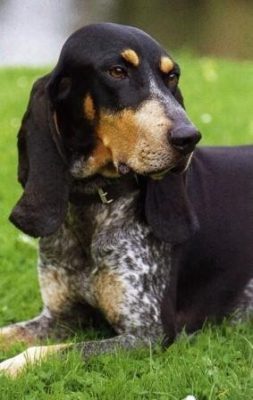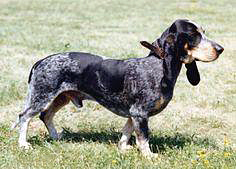Small Lucerne Hound
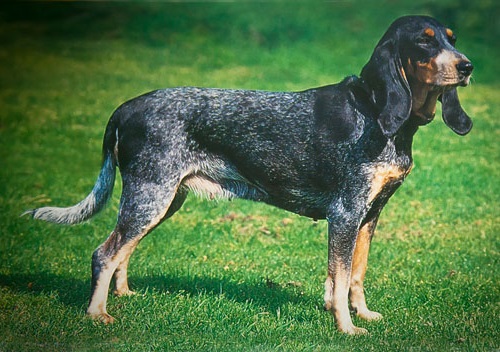
The Small Lucerne Hound has inherited the balanced and calm character of its older brothers, which at first sight seems paradoxical because of their hunting nature. At the same time, representatives of this breed are not deprived of real hunting qualities – they are hardy, persistent, curious, and intelligent. These dogs, like a compass, are well oriented in the area, following the game. Thanks to their excellent sense of smell, they pick up the trail well.
Table of Contents
Breed Information
| Another Name | Luzerner Niederlaufhund |
| Origin | Switzerland |
| Height | Males 35-43 cm Females 31-40 cm |
| Weight | 9-15 kg |
| Fur | Short smooth |
| Color | White-black-gray with bright red tinges |
| Lifespan | 13-15 years |
| FCI Classification | Scent hounds and related breeds |
| Group | Hunting dogs |
| Price | From $700 |
Breed Photos
Origin History
The Small Lucerne Hound is one of the four hunting breeds of the Small Swiss Hound and is well adapted to small area hunting. The key advantage of this breed is the combination of small size and excellent hunting qualities. Representatives of the Small Swiss Hound are the younger brothers of the medium-sized Lucerne Hound.
At the beginning of the 20th-century, hunting in Switzerland began to change – private hunting grounds appeared and began to develop. They were comparatively smaller, and the use of medium-sized hounds was not advisable. Swiss Hounds, which were then at the peak of popularity, developed too fast, and small areas were disproportionate. That’s when the idea was born of a breed that would be an exact copy of the average Swiss Hound but a little smaller in size. Thus, the breed of Small Swiss Hound was bred, the small Lucerne hound, which resulted from crossing the Swiss Hound with the Basset Hound.
Appearance
The Small Lucerne Hound is a low-sized dog with a muscular and slightly elongated body, straight back, and narrow skull. It has expressive dark brown eyes and dense black eyelids, a piercing and intelligent look. This breed’s ears are low-set, floppy, slightly curled at the base, resembling an oval at the ends.
The coat of the small alfalfa hounds is smooth. They possess an unusual color – white, slightly visible under the abundant gray spots, or black and white with large black spots. Sometimes the color of this pet has a bluish tint, which appears as a result of an even mixture of black, white, and gray spots. Above the eyes, on the cheekbones, and the ears, the Small Lucerne Hound has bright red underparts.
Character
The Small Lucerne Hound has inherited the balanced and calm character of its older brothers, which at first sight seems paradoxical because of their hunting nature. At the same time, representatives of this breed are not deprived of real hunting qualities – they are hardy, persistent, curious, and intelligent. These dogs, like a compass, are well oriented in the area, following the game. Thanks to their excellent sense of smell, they pick up the trail well.
At the same time, the Small Lucerne Hound can be an excellent companion to its owner; it becomes very quickly attached and always stays loyal to him. These dogs are friendly to strangers, but they have no trust in them, as evidenced by the slight wariness in the pet’s eyes. Small Swiss Hounds get along well with other dogs and small children.
Care
The care of the Small Lucerne Hound cannot be called complicated. To maintain the pet’s coat’s healthy appearance, it is necessary to comb it with a special brush once a week. You can bathe the dog as needed; sometimes, bathing should be replaced by wiping with a wet towel. Hanging ears of the Small Lucerne Hound require careful regular cleaning.
Even though small Lucerne hounds are sometimes kept in city apartments, this breed’s best habitat is a house with a large yard. It needs a lot of space and freedom of movement, deprived of when living in an apartment.
Training
The Small Lucerne Hound’s hunting instincts show themselves at an early age – freedom-loving and stubbornness make themselves felt in the first days of the pet’s arrival at home. The sooner he is trained, the better. The process of training the Small Lucerne Hound and any other hunting breed requires patience and persistence.
The Small Lucerne Hound is an intelligent animal, grasps on the fly and quickly remembers all commands. If you make your pet understand that his trainer is the leader, he becomes more obedient, and the training process becomes effective and brings pleasure to all participants of the process. Don’t be aggressive, angry, cruel, or unfair towards your dog.
Common Diseases
The Small Lucerne Hound is a short-legged member of the Swiss breed that is as healthy as its older relatives. To keep in good shape, the pet needs to provide regular physical activity. Otherwise, the small Lucerne hound is prone to the development of limb dysplasia, as well as neurosis. The pet’s long ears are prone to soiling and fogging due to insufficient ventilation. Without regular care, this can lead to inflammation of the ear canal and ear infections.
Nutrition
The Small Lucerne Hound diet is based on lean raw meat, which provides a sufficient amount of protein. The daily norm for a small hound is about 200-300 grams. In addition to meat, the pet’s diet should include meat broths, porridges, thick vegetable soups.
The dog’s diet should be balanced and enriched with vitamins. Also, it is necessary to ensure that the portion size corresponds to the small alfalfa hound’s physical activity.
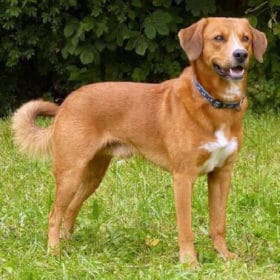 Austrian Pinscher
Austrian Pinscher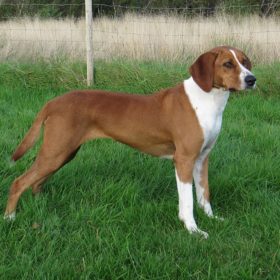 Hygen Hound
Hygen Hound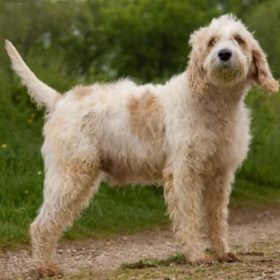 Briquet Griffon Vendéen
Briquet Griffon Vendéen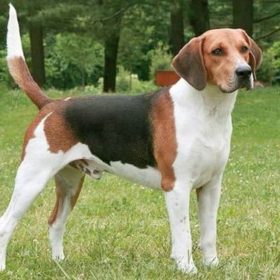 Beagle-Harrier
Beagle-Harrier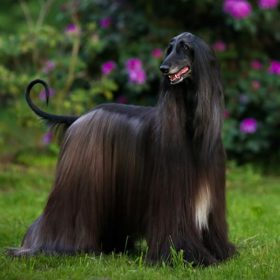 Afghan Hound
Afghan Hound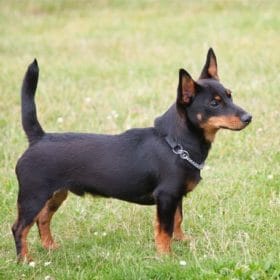 Lancashire Heeler
Lancashire Heeler